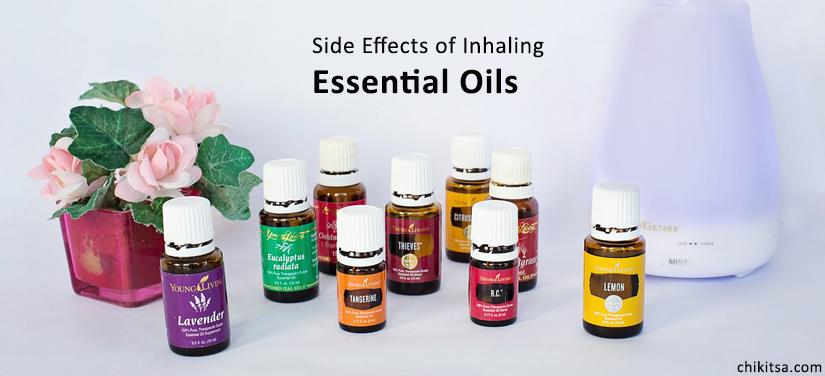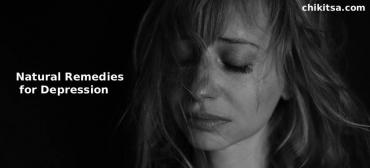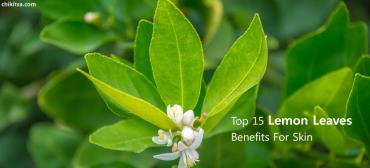Dangers of Inhaling Essential Oils You Need to Know About

We all are aware of the amazing benefits provided by essential oils. These are not only used by many for health and beauty but are also put to use for cleaning of households and much more. There are many reasons as to why people use these and many also believe that these have miracle abilities. If you are one of them, are you really aware of inhaling essential oils side effects?
Side Effects of Inhaling Essential Oils
Well, did you ever wonder as to how safe essential oils are? The key point anyone needs to understand is that these oils are concentrated and hence you need to use only a very small amount to obtain the needed results. Also, take time to read the labels so that you follow the given guidelines.
Most of the essential oils are very safe to inhale or to be used in a diffuser. But you need to make sure not to add more than 5 drops when you are using an oil burner or diffuser. There are people who also inhale the scent of these oils from the bottle directly. But can inhaling essential oils make you sick?
If you are using the right essential oil, it might help you recover. People suffering from seasonal health issues like cold or flu often use these oils to recover.
- Inhaling some of the essential oils are not recommended for pregnant women or those who are breastfeeding. This is due to increased sensitivity in pregnant and breastfeeding women.
- If you are using an oil diffuser, make sure you do not use it in rooms of babies or toddlers. It can at times create suffocation or even skin irritation if the child has any allergies.
- Essential oils can also leave a negative side effect when used by people suffering from asthma or respiratory problems. This mostly occurs when you make use of strong fragrances. It can at times cause a respiratory reaction. If you feel uncomfortable using any of the essential oil, you need to stop inhaling it immediately.
- Respiratory reactions can also occur if you leave your diffuser plugged in for a longer duration. Just use it for about 30 – 40 minutes and unplug it after use. Never leave the diffuser on overnight.
- Essential oils are highly flammable and hence you need to keep them away from flames for extra safety.
- Intense fragrances can make you feel uncomfortable or you might at times experience nausea or a headache. So, make sure you use these in a room that has good ventilation.
It always helps to start using any of the essential oils slowly as it helps you to understand if you are allergic to any of them. If you feel that use of any of these oils is causing a health issue, better consult your doctor for an opinion.
Dangers of Using Essential Oils
Below mentioned are a few dangers you need to keep in mind before you use any of the essential oils.
Increase Photosensitivity
Use of some oils makes the skin more sensitive to the sun. In such cases, even a minor exposure to sun rays can cause bad sunburns. So, if you are planning to hit the beach or going for a walk, just make sure not to apply any photosensitizing oil.
Citrus types of oils are the ones that are generally considered to be photosensitizing. Some of them are lemon and lime essential oils, orange essential oil, Bergamot and grapefruit essential oil. Remember that these oils do not cause any tan, but can cause a lot of harm when you apply on your skin and it is then exposed to UV rays.
Not Every Essential Oil is Safe to use when Pregnant or When Nursing
When you are pregnant, you are very careful about what you drink or eat and the same applies when you are nursing your little one. It is also important that you take extra care if you are planning to use any essential oils. Essential oils can easily cross the placenta and reach the baby and the effects are compounded in the utero. So, do your own research about the oil before you use it. There are also a few essential oils that are quite safe to use during pregnancy but it is good you check with your doctor before you plan to use one. Also, it is advised not to use any kinds of essential oils in the first trimester.
As per NAHA or The National Association for Holistic Aromatherapy, some of the essential oils that have to be avoided by pregnant and nursing women are Wintergreen, Sage, Birch, Aniseed, Camphor, Hyssop, Thuja, Wormwood and Parsley essential oils. Women who are nursing should also avoid using peppermint nursing oil as it can drastically decrease the milk supply.
Potential Medical Interactions
If you are administering any prescription drugs, it is important to know if any of the essential oils you are using will have a medical interaction. If you are unsure, it is better you stop using the same and consult your doctor immediately. A number of essential oils can also cause drug interaction and this can be life-threatening as well. If you still have to any essential oil, it is recommended to consult a professional aromatherapist to know its risks or side effects.
Never Use Essential Oils on Kids or Babies
An advice given to an adult for the use of essential oil should not be applied to kids or babies as it can be quite harmful. Kids, especially babies have a very delicate skin and essential oils can cause more harm than good when applied. Also, never give diluted or undiluted essential oils internally to the kids. There are a number of dangers of ingesting essential oils and hence an expert suggestion is always necessary.
Essential oils like lemon, lavender, orange and frankincense are known to be safe for kids but they need to be well diluted. You can have a word with the doctor first and start with a patch test on the skin. Oils like rosemary, wintergreen or peppermint should never be used for kids. Also, keep any essential oil away from kids as it is not a medicine.
Never Use Essential Oils for Your Pets
Humans often enjoy the pleasant and the amazing aroma of flowers or herbs, but pets have a very different biology altogether. Four-legged animals have very sensitive noses and hence these oils can prove to be quite toxic for them. There have been many reports in the past about the death of animals due to the use of essential oils.
Though oils like Tea tree or Pennyroyal are used by a number of pet owners to treat fleas or dermatological problems, the side effects of using them too have been witnessed. Most of them often end up visiting a vet after the pet starts showing symptoms like ataxia, weakness, tremors, vomiting and depression. Use of essential oils can also use a build-up of toxins gradually in the animal’s system and can cause organ failure as well.
Skin Irritations
Though essential oils are very natural, they can still cause skin irritations in people. Make sure not to use any kind of an essential oil on your skin directly without diluting the same. If your skin is already prone to allergies, you might as well experience mild irritation or even a bad rash or even loss of pigmentation.
It is also important to dilute the essential oils using carriers like coconut oil or almond oil and the rule you need to follow while diluting is adding 3-5 drops of these essential oils to one teaspoon of the carrier oil. If you wish to know if you are sensitive to any oil, you can just add just one drop of essential oil to half a teaspoon of carrier oil. Then rub a little mixture of this on your arm as a patch test and wait for 2-3 hours. If you do not feel any irritation or redness, you can use the essential oil.
Now that you know about inhaling essential oil side effects and the risks of using undiluted oils on your skin, make sure to do your own research before using any of these oils.









